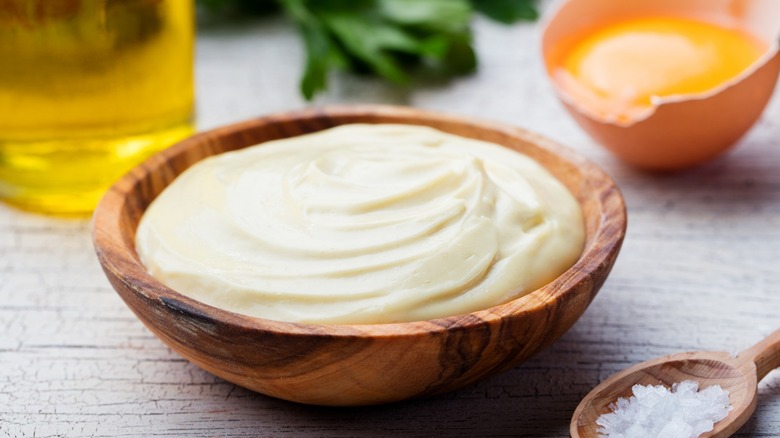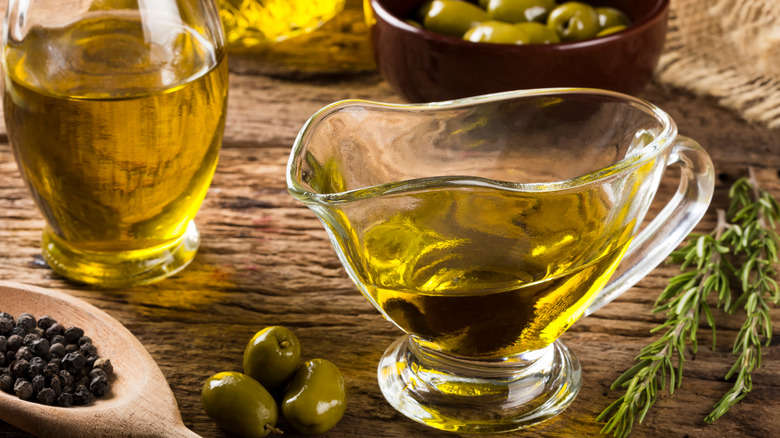There's A Right Oil Temperature When Making Mayonnaise
When you grab a jar of mayonnaise from the store, you're getting a mix of preservatives, added sugars, high fructose corn syrup, and unhealthy fats like soybean oil. According to SFGATE, soybean oil is high in omega-6. Consuming too much of those fatty acids can increase inflammation in the body and may contribute to chronic diseases like heart disease and cancer. Likewise, consuming too much sugar can lead to obesity and diabetes. Not ideal for your health, right?
But what do you do when you crave a classic BLT or a hearty roast beef sandwich smothered in mayo? Try making mayonnaise from scratch. All you need are some ingredients you probably already have in your kitchen, like eggs, vinegar, and Dijon mustard. And the best part? You can use a healthier oil like avocado or olive oil to make your mayo healthier than store bought. But here's the catch: The key to perfect homemade mayonnaise is getting the oil temperature just right. Too hot, and your eggs will scramble. Too cold, and your mayo won't emulsify properly. So, what's the sweet spot?
70 to 80 degrees Fahrenheit is the ideal oil temperature for homemade mayonnaise
The temperature of your oil is just as important as the temperature of your eggs when making mayonnaise. According to Delishably, you should aim to have both between 70 to 80 degrees Fahrenheit. Place your eggs in a bowl of warm water until both the eggs and water have reached room temperature. Once you've let them soak, give the eggs a gentle shake. If they're still cool, let them sit in the warm water a little longer until they're fully warmed through and ready to be whisked into creamy, dreamy mayo goodness.
Keep in mind that the temperature of the oil will rise as you whisk it, so start with oil slightly cooler. Slowly add oil while whisking the eggs together with an acid like lemon juice or vinegar. This will help to slowly raise the mixture's temperature, allowing you to control the emulsification process. According to Delishably, running the air conditioner in the summer to keep your kitchen cool or the heat during the winter will help maintain the ideal temperature as you whip up some homemade mayo.
Making mayo from scratch can take some time, but it's worth it for the taste and quality. By keeping your ingredients at the right temperature and adding your oil slowly, you can make delicious homemade mayonnaise that's perfect for dipping, spreading, and adding to your favorite dishes.

